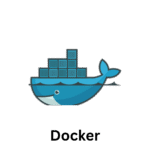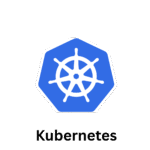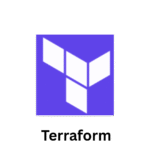What is DevOps? A Beginner’s Guide
Learn what DevOps is, why it matters, and how it can boost your IT career. Enroll in Lavatech Technology’s online or offline DevOps course today.
Introduction
In the fast-paced world of IT, DevOps has become a critical methodology that organizations adopt to enhance software development and delivery. But what exactly is DevOps?
DevOps is a culture, practice, and set of tools that brings together software development (Dev) and IT operations (Ops) to improve collaboration, increase efficiency, and accelerate the delivery of high-quality software.
Traditionally, development and operations teams worked in silos. Developers wrote code, and operations teams deployed it, often leading to delays, errors, and inefficiencies. DevOps eliminates these barriers by promoting continuous integration, continuous delivery, automation, and monitoring, enabling businesses to release software faster, with fewer errors.
Whether you’re a student, a fresh graduate, or an IT professional, understanding DevOps is essential to stay competitive in today’s job market.
The Core Concepts of DevOps
DevOps is not just a set of tools; it’s a philosophy that combines culture, processes, and technology. Here are the key concepts:
Continuous Integration (CI)
Continuous Integration is the practice of regularly merging code changes into a central repository. Each integration is automatically tested, which helps in identifying bugs early in the development cycle.
Benefits: Reduces integration issues, ensures code quality, speeds up development.
Tools: Jenkins, GitLab CI, CircleCI.
Continuous Delivery (CD)
Continuous Delivery automates the process of deploying software to production. Once code passes testing, it can be deployed rapidly and safely, often multiple times a day.
Benefits: Faster feature releases, reliable deployments, better user satisfaction.
Tools: Jenkins, Bamboo, GitLab CD.
Infrastructure as Code (IaC)
IaC allows IT teams to manage and provision infrastructure through code rather than manual processes. This ensures consistency and eliminates configuration drift.
Benefits: Scalable environments, reduced errors, faster setup.
Tools: Terraform, Ansible, Chef, Puppet.
Automation
Automation in DevOps reduces repetitive tasks, such as code testing, deployment, and server provisioning.
Benefits: Saves time, minimizes human error, increases efficiency.
Monitoring and Feedback
Continuous monitoring ensures that applications are performing optimally. Feedback loops allow teams to identify and fix issues proactively.
Tools: Prometheus, Grafana, ELK Stack.
Why DevOps Matters for Your Career
Learning DevOps can be a game-changer for your career. Here’s why:
High Demand Across Industries: Companies in IT, finance, e-commerce, healthcare, and more are adopting DevOps to speed up software delivery.
Better Salaries: DevOps professionals earn significantly higher than traditional developers or IT support staff. For example, DevOps engineers in India can earn between ₹6–15 LPA depending on experience.
Versatile Roles: With DevOps skills, you can work as a DevOps engineer, cloud engineer, site reliability engineer (SRE), or release manager.
Career Growth: DevOps knowledge opens doors to leadership roles in technology management and operations.
Real-World Applications of DevOps
DevOps is widely used in multiple industries. Some real-world examples:
E-commerce: Companies like Amazon and Flipkart deploy updates frequently, especially during festive sales. DevOps ensures smooth, error-free releases.
Banking & Finance: Continuous integration and automated testing help banks release secure and compliant applications.
Healthcare: DevOps enables faster deployment of patient management software and telemedicine apps.
Gaming: Game developers can release updates and patches quickly to improve user experience.
Hands-on experience with real-world projects is essential to master these skills, which is why Lavatech Technology’s DevOps course includes live projects and simulations.
Tools You Need to Learn in DevOps








To become a successful DevOps engineer, familiarity with the following tools is crucial:
Jenkins: Automates CI/CD pipelines.
Docker: Creates containerized environments for consistent deployments.
Kubernetes: Manages container orchestration at scale.
Ansible / Puppet / Chef: Configuration management and automation.
Git & GitHub / GitLab: Version control and collaborative coding.
Terraform: Infrastructure as Code.
Monitoring Tools: Prometheus, Grafana, ELK Stack.
Mastering these tools will help you build and deploy applications efficiently, making you a sought-after DevOps professional.
Online vs Offline DevOps Training
Lavatech Technology offers both online and offline DevOps training to suit your needs.
Online Training:
Flexible learning hours
Access from anywhere
Recorded sessions and live projects
Offline Training:
Classroom interaction with trainers
Hands-on lab sessions
Networking opportunities with peers
Choosing the right mode depends on your schedule, learning style, and location. Both formats provide the same curriculum and placement support.
Career Path & Job Opportunities
After completing a DevOps course, here are some career options:
DevOps Engineer: Handles CI/CD pipelines, automation, and deployment.
Cloud Engineer: Focuses on cloud infrastructure and services.
Site Reliability Engineer (SRE): Ensures system reliability and uptime.
Automation Engineer: Implements automated processes across development and operations.
Release Manager: Coordinates software releases across teams.
With the right skills and certification, you can enter top companies like TCS, Infosys, Accenture, Amazon, and Microsoft.
Benefits of Learning DevOps
Faster Software Delivery: Accelerates development cycles.
Higher Productivity: Automation reduces repetitive tasks.
Improved Collaboration: Dev and Ops teams work together seamlessly.
Better Quality & Security: Continuous testing and monitoring ensure reliable software.
Career Growth: Opens doors to high-paying roles globally.
FAQs About DevOps
Q1: Do I need prior experience to learn DevOps?
No, beginners can start with basic Linux and scripting knowledge.
Q2: Is DevOps only for IT professionals?
While IT professionals benefit most, anyone interested in software automation and cloud technologies can learn DevOps.
Q3: How long does it take to complete a DevOps course?
Typically 3–6 months with regular practice and hands-on projects.
Q4: Can I learn DevOps online?
Yes, online courses provide flexible learning with live projects and recordings.
Q5: Which DevOps certification is best?
Certifications from AWS, Azure, Jenkins, Docker, and Kubernetes are highly valued.
Conclusion + CTA
DevOps is not just a methodology; it’s a career-transforming skill. It empowers IT professionals to deliver software faster, more reliably, and more efficiently.
Whether you choose online or offline training, hands-on learning with real-world projects is key. Lavatech Technology’s DevOps Course in Pune offers comprehensive modules, live projects, certification, and placement assistance to help you launch your career successfully.
Take the first step today! Enroll in our DevOps course and become a certified DevOps professional.
Internal Links: Courses, Contact Us
External Links: Jenkins Official Documentation, Kubernetes